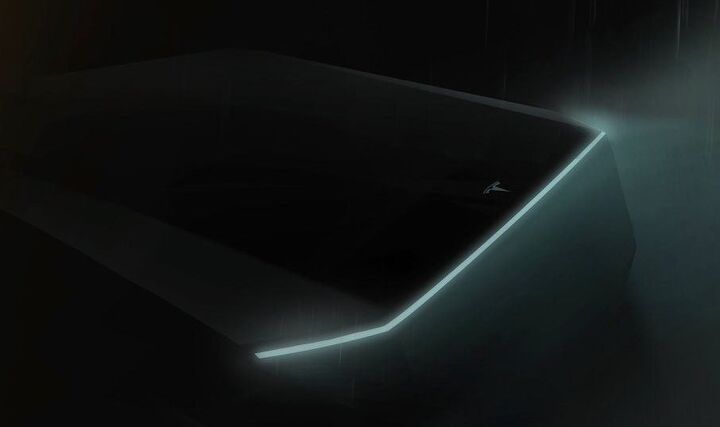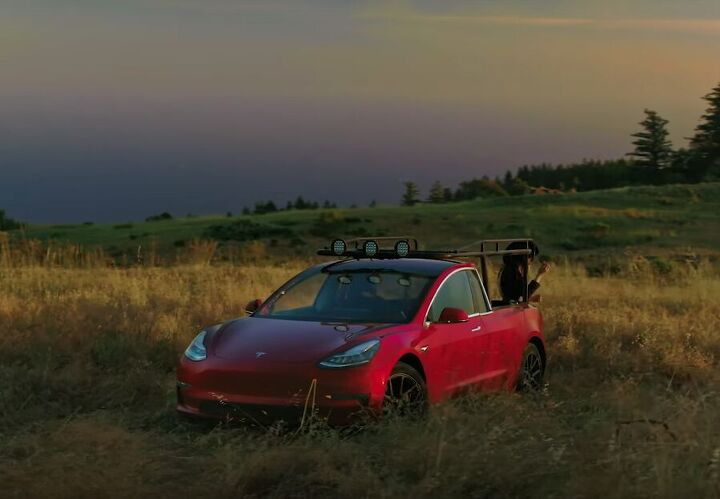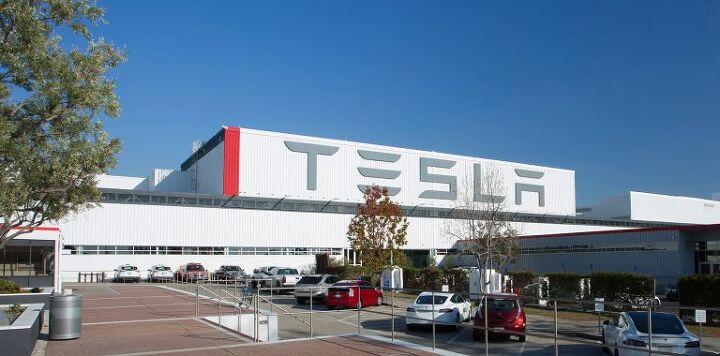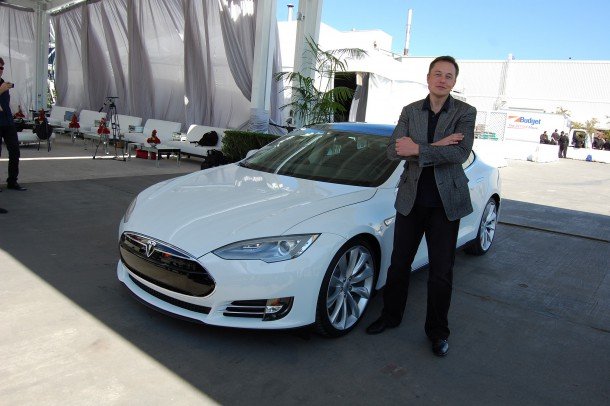#TeslaPickup
Grim News: Tesla Might Call Its Pickup 'Cybrtrk'
Since Tesla CEO Elon Musk first uttered the word, we’ve avoided mentioning what seemed to be a nerd-fantasy placeholder name for the automaker’s upcoming electric pickup. Unfortunately, trademark applications reveal Tesla might actually make use of the word that dare not speak its name: “Cybertruck,” or, even worse, “Cybrtrk,” because vowels aren’t cool in Silicon Valley.
Speaking personally, it’s an unfortunate turn of events.
Tesla Pickup Has a Reveal Date; Availability Still TBD
If you’re eagerly anticipating next year’s launch of the redesigned Ford F-150, Tesla CEO Elon Musk’s past claim that the Tesla pickup will rub its face in the dirt probably doesn’t have a lot of pull. Placed in a Venn diagram, these two camps — Tesla diehards and F-150 superfans — likely overlap very little, if at all.
That said, there’s still plenty of buzz surrounding the upcoming pickup, which we now know will make its debut on November 21st. Unless it becomes official, there’s no way we’re using Musk’s preferred name for the model.
YouTube Personality Builds Tesla Pickup Using Chopped Model 3
During Tesla’s most-recent shareholders meeting, Elon Musk said the company’s pickup should be arriving this fall — adding that we would probably see it near the end of the summer if everything goes according to plan. Apparently disinterested in waiting another two months, robotics enthusiast and self-professed EV fan Simone Giertz decided to fabricate her own using a Tesla Model 3 as a starting point.
Giertz, who runs a YouTube channel focused on quirky building projects, claimed the home-brewed pickup’s relation to the sedan was one of necessity. She only chose the Model 3 because it possessed a steel chassis and was cheaper to risk ruining than a Model S would have been.
Tesla CEO Issues Pickup Promise, Hints at Full-sized Model
Tesla Motors or, more accurately, company CEO Elon Musk has hinted at the prospect of an electric pickup for quite some time. But neither the automaker nor the CEO ever issued any kind of concrete guarantee on it, even after other manufacturers had already beaten it to the punch.
However, Musk is now officially promising the pickup will be made immediately after the Model Y crossover arrives sometime between 2019 and 2020. Of course, he also promised that Model 3 deliveries would hit its stride before the end of this year. So let’s consider this more of an assurance that Tesla will produce the electric truck and not so much an indication of when you might see one on public roads.
You Like Trucks? We've Got Two Trucks Coming, Says Tesla
If Tesla CEO Elon Musk knows what’s good for him — and his bottom line — he’ll arrange a product placement in a Hollywood remake of Smokey and the Bandit, probably starring Ryan Reynolds. Maybe that Stifler guy, if he’s still bankable.
America’s electric-only automaker figures it has the conventional EV passenger car and SUV markets covered, so it’s time to fulfill a promise made last year: trucks. Specifically, a pickup and a semi truck, the first of which is due for an unveiling this year.




















Recent Comments